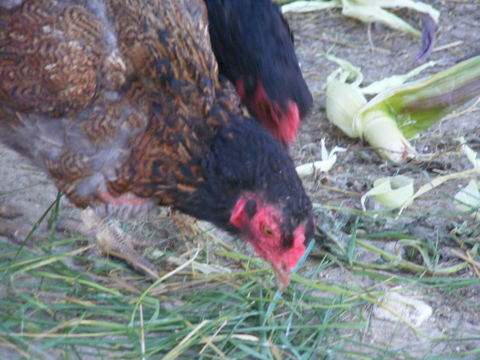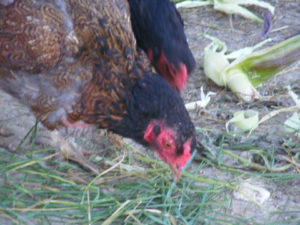

The growing trend of backyard chickens in recent years is encouraging for anyone interested in homesteading and self-sufficiency. Relaxed zoning regulations are allowing more and more people who wouldn't otherwise consider backyard chickens to take a swing at it.
But there's a dark side to raising chickens, especially in urban and suburban areas: owners are giving up their birds to crowded animal shelters.
Dark Side of Backyard Chickens: Fall Air Brings Dose of Reality
An article this week in the Minneapolis Star Tribune profiled a shelter that takes in unwanted birds. Drop-offs are on the rise.
“The numbers escalate in August as back-to-school mentality sets in, then increase as the fall progresses and explode when the cold weather actually hits,” said Mary Britton Clouse, founder of Chicken Run Rescue, a home-based shelter program in Minneapolis.
Chicken Run has seen its numbers increase dramatically in recent years, coinciding with the rise in urban hipsters and locavore foodies who have been inspired to try their hand at small back-yard poultry operations.
Dark Side of Backyard Chickens: Pets vs. Livestock
The words “urban hipsters” and “locavore foodies” should be red flags. They're both examples of the divide within the backyard chicken arena.
On the one side are those who view chickens more like trendy pets. Although they will harvest eggs and manure for self-sufficiency purposes, the fun has an expiration date. When the chickens stop laying eggs or become inconvenient, they're sold as pets, not for meat.
Now that her daughter is heading off to college, Meyer is hoping to downsize the flock of 16 hens and one rooster, “Cluck Gable.”
But she won’t sell them for meat, she said. “If I can’t find someone who wants ’em, I’ll just hang on to ’em.”
This is the wrong approach.
The other side of the backyard chicken divide views these animals for their utility. When the chickens stop laying eggs, they're butchered for meat. It's not a trend or a hipster fad. It's a lifestyle of self-sufficiency, and it's the right way to go about raising chickens. No crowded shelters. No hurt feelings. Just full stomachs.
Dark Side of Backyard Chickens: This Affects You, Dear Prepper
These two approaches to backyard chickens are not without consequences. If unwanted livestock overwhelms shelters, local governments may use zoning restrictions to limit backyard chickens. Negligent backyard chicken owners may ruin it for everyone else.
The Solution
There are two keys to preventing this from happening:
Don't take in any animal, either pets or livestock, that you're not fully committed to through its lifespan. If an animal will be raised for food, make plans for how the butchering will take place.
Get educated.

![Best Concealed Carry Guns In 2025 [Field Tested] Wilson Combat EDC X9S 1](https://gundigest.com/wp-content/uploads/Wilson-Combat-EDC-X9S-1-324x160.jpg)


![Best 9mm Carbine: Affordable PCCs [Tested] Ruger Carbine Shooting](https://gundigest.com/wp-content/uploads/Ruger-Carbine-Shooting-100x70.jpg)
![Best AR-15: Top Options Available Today [Field Tested] Harrington and Richardson PSA XM177E2 feature](https://gundigest.com/wp-content/uploads/Harrington-and-Richardson-PSA-XM177E2-feature-100x70.jpg)
